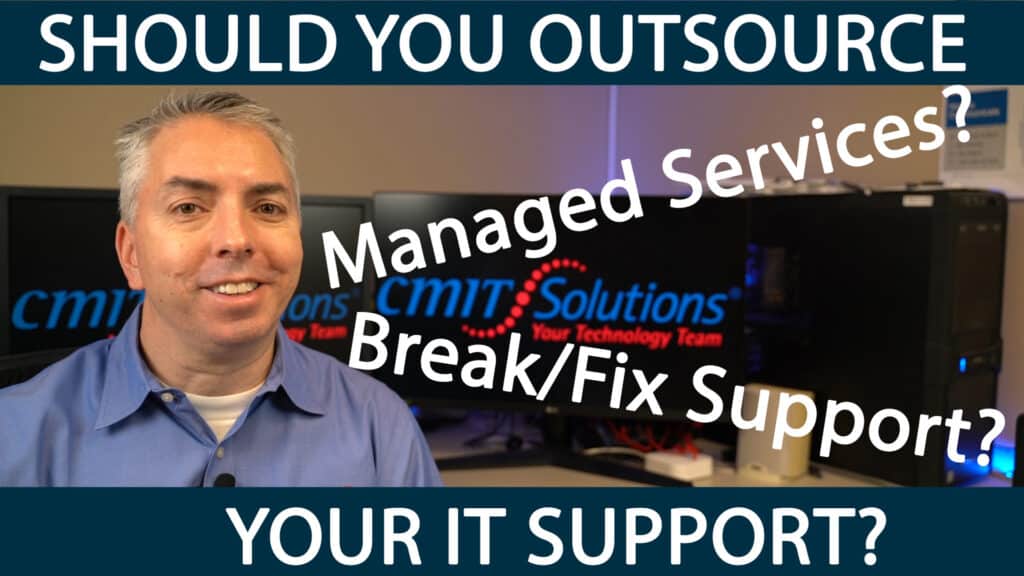Introduction: The True Cost of Staying Stuck in the Past
For many small and mid-sized businesses, technology is both a foundation and a frustration. Legacy systems — outdated software, old servers, and rigid infrastructure often feel “good enough.” But in today’s competitive landscape, “good enough” is no longer sustainable.
Businesses that cling to legacy systems risk higher operational costs, greater security vulnerabilities, and slower innovation cycles. In contrast, companies that embrace modernization unlock new efficiencies, data insights, and resilience.
At CMIT Solutions of Oak Park, Hinsdale & Oak Brook, we help businesses make the transition from outdated IT to modern, scalable, and secure systems ensuring that technology fuels growth instead of holding it back.
Understanding IT Modernization: More Than Just a Tech Upgrade
IT modernization isn’t just about replacing old hardware or upgrading to the cloud. It’s a holistic transformation that aligns technology with long-term business goals.
As discussed in business tech, modernization means optimizing every part of your digital ecosystem — from servers and storage to software and workflows.
- Migrating outdated systems to cloud-based platforms.
- Integrating automation and AI tools for smarter operations.
- Ensuring real-time collaboration through unified systems.
- Enhancing cybersecurity and compliance across endpoints.
- Creating scalable infrastructure that adapts to change.
Modernization is about building a technology foundation that supports innovation not limits it.
The Hidden Costs of Legacy Systems
While legacy systems may still function, their hidden costs can quietly drain profits and productivity.
In cyber defense, CMIT outlines how outdated infrastructure often creates vulnerabilities that attackers exploit.
- Maintenance overhead: Older hardware and software demand constant patching and specialized skills.
- Security risks: Unsupported systems often lack modern encryption and updates.
- Downtime and inefficiency: Slow systems reduce output and frustrate employees.
- Integration challenges: Legacy tools rarely align with modern applications.
- Compliance concerns: Outdated technology can jeopardize audit readiness.
These hidden costs don’t appear on balance sheets but they show up in lost opportunities, reputational harm, and technical debt.
Cloud Modernization: The Cornerstone of Transformation
The cloud has become the backbone of modern IT strategy. Moving to the cloud is about agility, scalability, and security not just data storage.
As detailed in cloud solutions, cloud adoption offers measurable ROI for businesses of all sizes.
- Reduced capital expenditure: Pay only for the resources you use.
- Enhanced scalability: Adjust resources on demand.
- Remote accessibility: Empower hybrid and remote teams.
- Built-in resilience: Automated backups and disaster recovery.
- Data analytics integration: Access real-time insights for smarter decisions.
Cloud-first modernization gives your business the flexibility to pivot quickly in a dynamic marketplace.
Cybersecurity: Protecting Modern Infrastructure
Modern IT requires modern security. As businesses digitize operations, the attack surface expands, making cybersecurity an essential part of modernization.
In cybersecurity trends, CMIT emphasizes layered defense as a core pillar of modern IT.
- Endpoint protection: Advanced detection and response across devices.
- Zero Trust access: Verifying every user, every time.
- Automated monitoring: 24/7 visibility into threats and anomalies.
- Secure cloud configurations: Prevent misconfigurations that expose data.
- Data backup and recovery: Fast restoration in case of ransomware.
Security-driven modernization ensures that innovation doesn’t come at the cost of safety.
The Productivity Payoff: Empowering Your Workforce
Modern IT infrastructure streamlines workflows, enabling teams to collaborate efficiently and securely.
In unified communication, CMIT showcases how technology enhances connectivity across departments and devices.
- Real-time collaboration through shared tools and cloud access.
- Integration between CRM, ERP, and communication systems.
- Improved remote work experience with secure connections.
- Reduced downtime with reliable infrastructure.
- Data-driven decision-making through AI insights.
Empowered employees are more engaged, efficient, and creative driving business outcomes faster.
Compliance and IT Modernization: Staying Audit-Ready
With data privacy regulations becoming stricter worldwide, compliance is now inseparable from modernization.
In compliance support, CMIT helps businesses navigate compliance with built-in governance and reporting.
- Automated data logging for audit transparency.
- Access control management aligned with regulations.
- Encryption and secure data retention policies.
- Real-time compliance alerts for potential violations.
- Simplified audits through centralized documentation.
Upgrading IT systems ensures your business meets today’s regulatory standards while preparing for future ones.
The Role of Managed IT in Modernization
Modernization isn’t a one-time project it’s a continuous process that requires expert oversight.
In managed IT, CMIT explains how Managed IT Services ensure smooth transitions and long-term optimization.
- Proactive monitoring of systems for performance and security.
- Regular updates and patch management to prevent vulnerabilities.
- Strategic IT planning aligned with business goals.
- Cost-effective support that scales with your company.
- 24/7 helpdesk assistance for immediate issue resolution.
Partnering with an MSP like CMIT transforms modernization from a challenge into a strategic advantage.
Data-Driven Decisions: Leveraging Analytics and AI
Modern infrastructure enables businesses to extract real value from their data.
In AI innovation, CMIT explores how AI-driven analytics support real-time decision-making.
- Identifies inefficiencies and automates repetitive tasks.
- Predicts market trends through data modeling.
- Personalizes customer experiences at scale.
- Monitors network activity for early threat detection.
- Optimizes workflows for maximum ROI.
Data is the new currency and modern systems are the vaults that protect and multiply its value.
Future-Proofing Through Continuous Innovation
True modernization means staying agile enough to adapt to whatever comes next whether it’s AI advancements, cybersecurity threats, or evolving customer expectations.
In business modernization, CMIT highlights how automation and proactive monitoring help organizations evolve continuously.
- Regular IT assessments identify areas for improvement.
- Automated updates keep systems current.
- Predictive analytics forecast future IT needs.
- Continuous optimization eliminates bottlenecks.
- Ongoing staff training ensures adoption and compliance.
Modernization isn’t a finish line it’s an ongoing journey of improvement.
Calculating the ROI of IT Modernization
Every investment needs a measurable return and IT modernization delivers it across every department.
In data recovery, CMIT shows how efficient recovery processes and secure systems cut costs and protect uptime.
- Reduced maintenance costs: No more expensive legacy repairs.
- Increased productivity: Automation saves hours of manual work.
- Enhanced customer satisfaction: Faster services and responses.
- Lower risk exposure: Fewer breaches and compliance violations.
- Improved scalability: Faster deployment of new initiatives.
The ROI isn’t just financial it’s operational, strategic, and cultural.
Conclusion: Don’t Let Legacy IT Limit Your Future
Every minute spent maintaining outdated systems is a missed opportunity for growth. IT modernization isn’t an expense it’s an investment in your business’s longevity, resilience, and competitive edge.
At CMIT Solutions of Oak Park, Hinsdale & Oak Brook, we specialize in transforming legacy infrastructure into dynamic, future-ready systems. From cloud migration to cybersecurity modernization and 24/7 managed support, we deliver technology that grows with your business.
It’s time to stop patching the past and start investing in the future.







